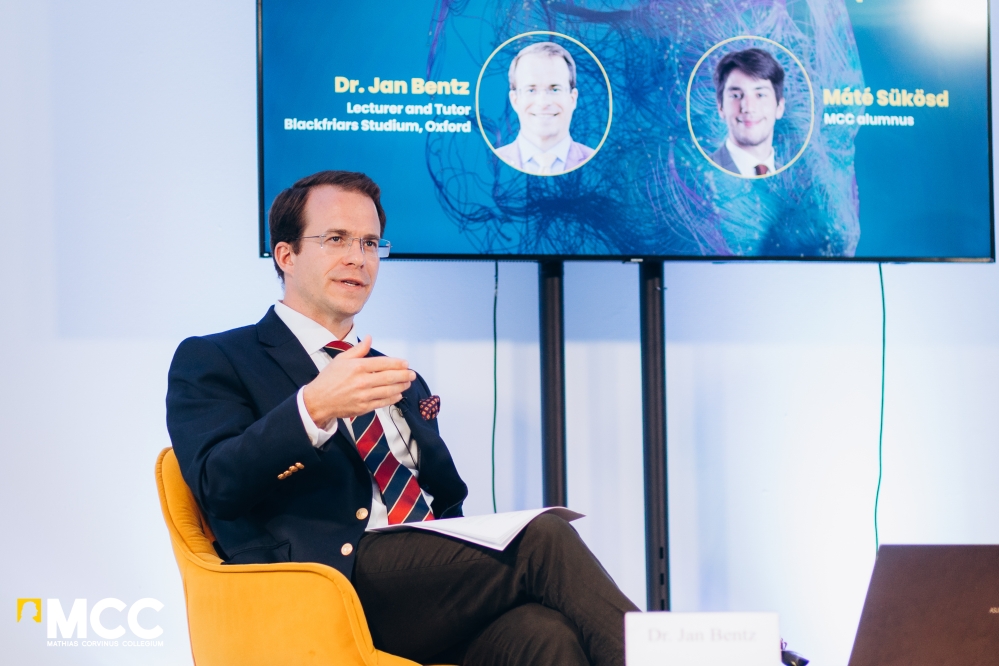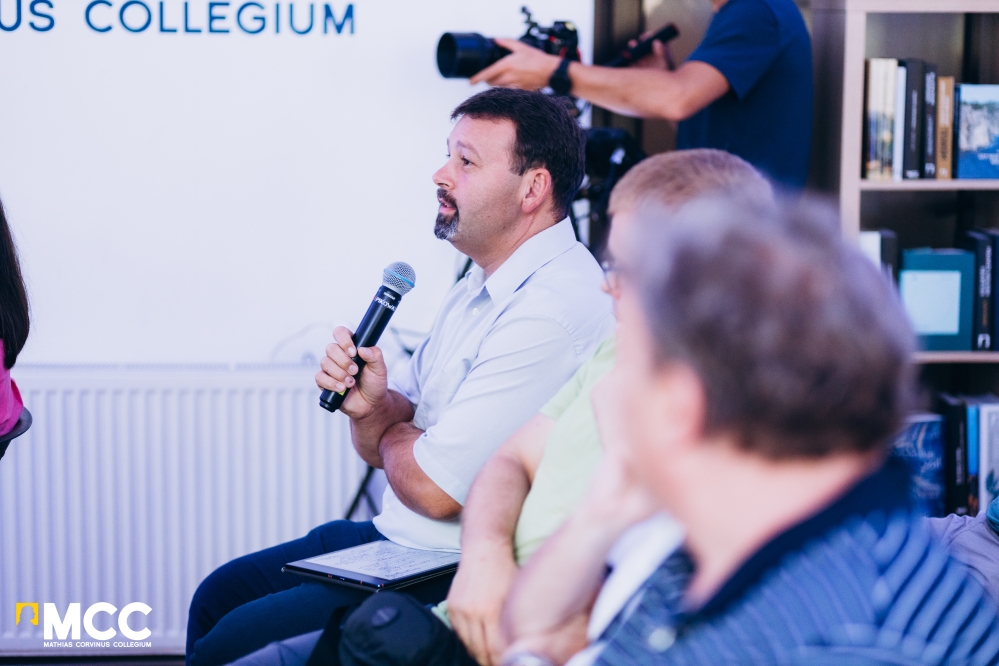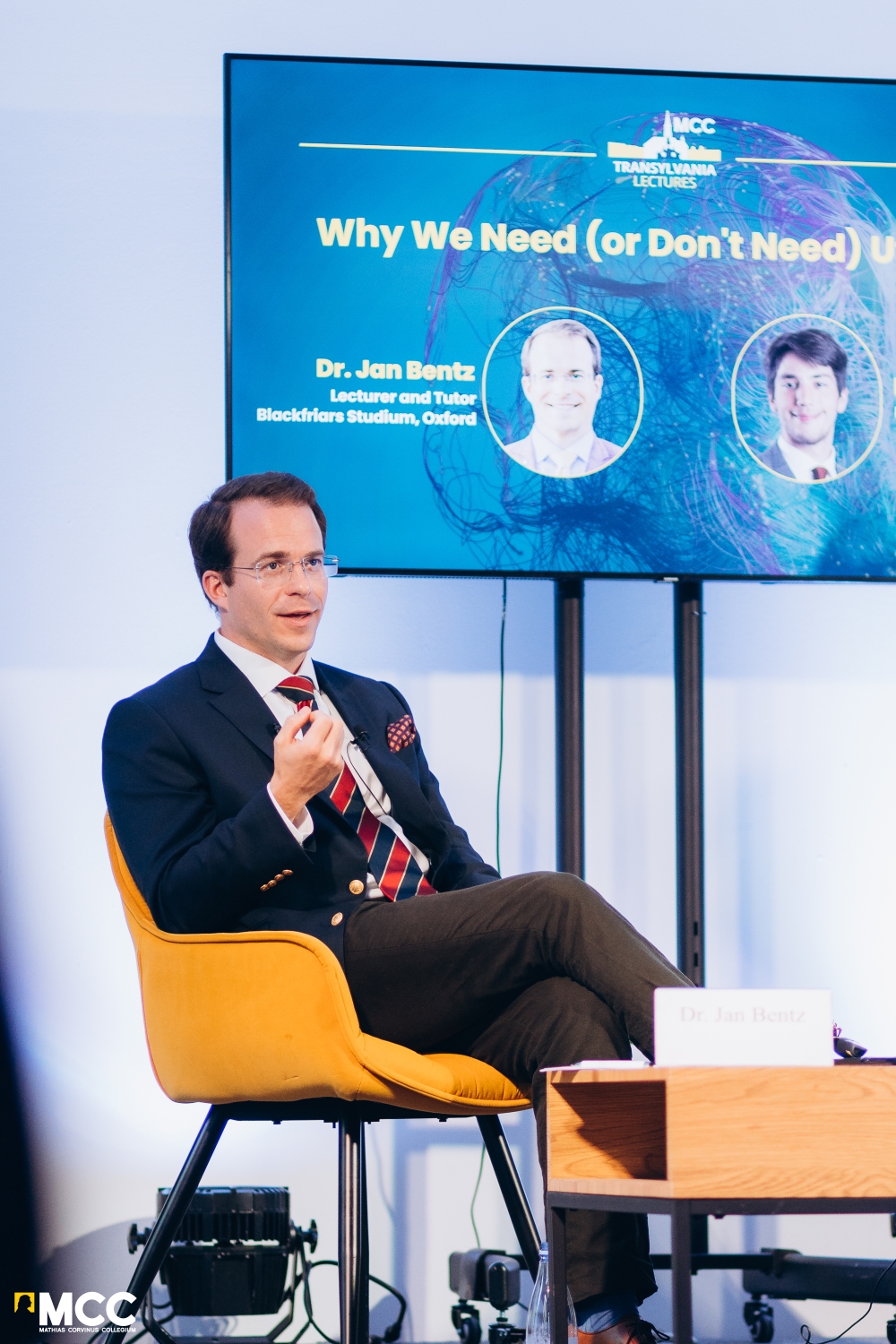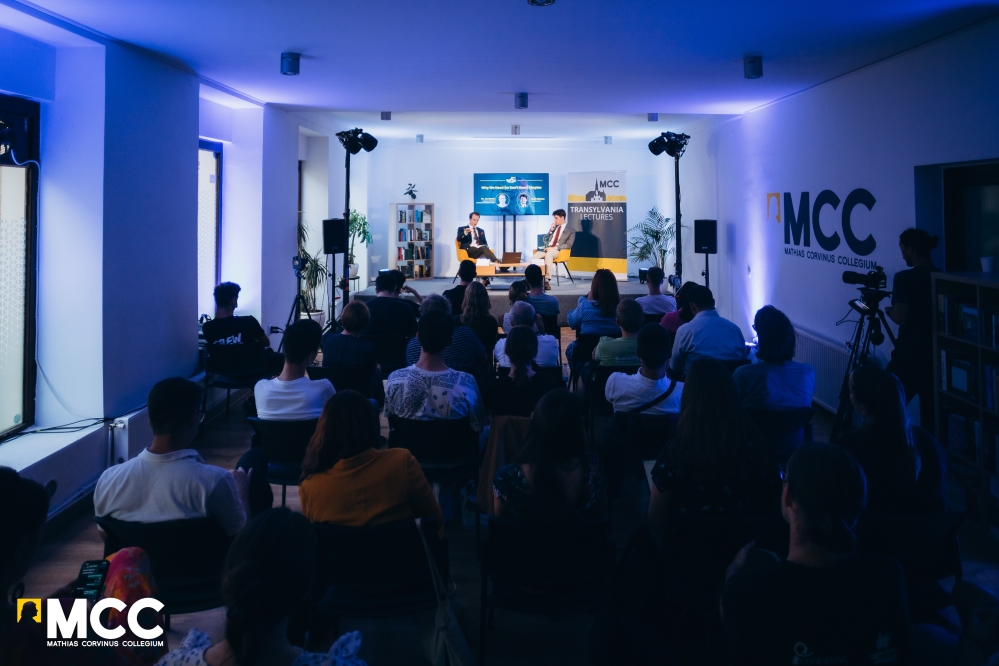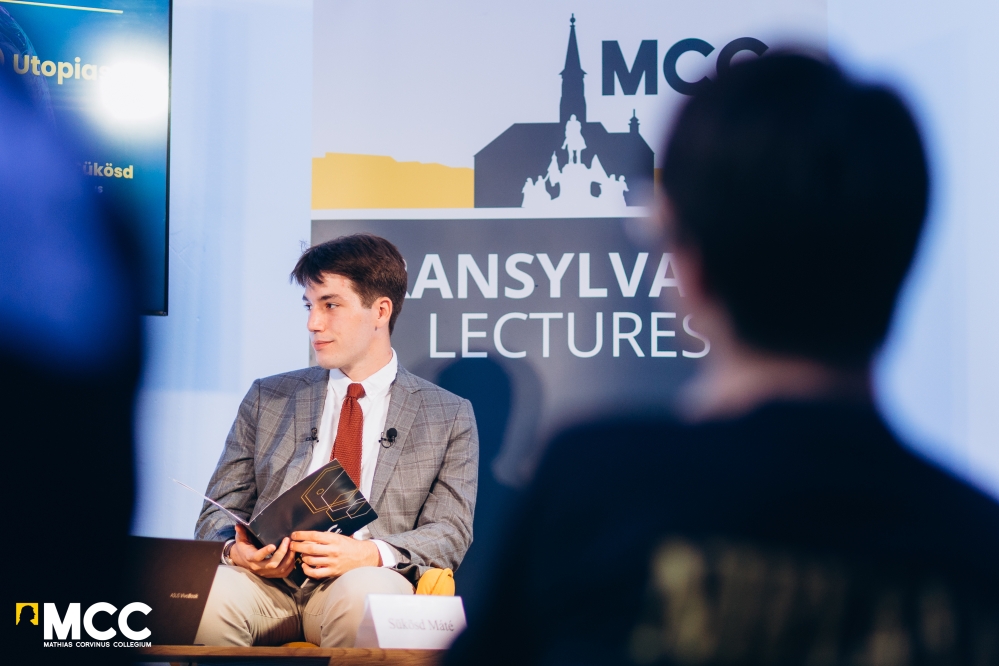Reading time: 4 minutes
Dr. Jan Bentz, lecturer and professor at Blackfriars Studium, Oxford, gave an enlightening lecture on the use of utopias as a harmful political tool, the Christian roots of utopian thinking and the recognition of deceptive ideologies at the MCC centre in Kolozsvár/Cluj-Napoca. The public lecture on 14 September was part of the MCC Transylvania Lectures series.
Just as heresy is related to faith, utopia is related to politics, said Thomas Molnar, who considered the pursuit of utopia as an ideology and was critical of it. Dr Jan Bentz addressed the question of utopias on the occasion of the publication of a volume of studies on the centenary of the birth of the Hungarian-American philosopher. In his reflections presented in Kolozsvár, he also reflected on the work of Thomas Molnar.
Dr Jan Bentz’s past employment included an adjunct professorship at the Catholic University of America’s Rome Center, a visiting professorship at Christendom College’s Rome Program, and teaching for IES Study Abroad in Rome. Prof. Bentz regularly contributes to The European Conservative and has worked as a video producer and Vatican analyst in the past. His fields of expertise include Metaphysics, History of Philosophy, Thomism, and Philosophy of Art focusing on Christian Sacred Art. His current philosophical research focus is philosophy of being, 17th and 18th century German idealism, Thomism, Utopia, and Transhumanism. He most recently edited a dedicatory book on Thomas Molnar.
"As an ideology, utopia serves especially well for political propaganda because its impossibility is welcome to politicians to evade their responsibility and they do not have to account for the shortcomings of their policies," said Jan Bentz at the lecture. However, it should also be borne in mind that utopia is more than a political tool: it also has a religious character, as it seeks to transform human nature completely and to see individuals who are purified of their faults and defects, of sin and guilt, without need of redemption. A perfect society requires such a perfect new man, and utopia makes itself the absolute goal of all history. For those who seek utopia, the only solution is to change the world, they see themselves as "initiates" or "enlightened" and feel justified in seizing power to lead the masses to the right path.
The speaker highlighted three theological elements of utopian thinking:
- Parousia, the expectation of the future the second coming of Christ is the essence of Christian hope, and the attainment of the kingdom of heaven is not controllable, but is possible through grace. The utopian also looks forward to a better future, but he sets the goal himself, he triggers its achievement.
- Overcoming sin: The utopian, on the other hand, wants to get rid of imperfection completely, tries to suppress evil and create a sinless man (e.g. Übermensch or the socialist type of man).
- While Christians believe in the coming of the kingdom based on Christ's teachings, utopians expect a perfect society, a community of perfect people, similar to the communion of saints. To achieve this, they are willing to use force to reorder the world according to their own ideas.
" The theme of utopia has a more direct impact than one might think on the politics and work of global and transnational corporations and supranational politics," explains Jan Bentz. The utopian vocabulary flows into numerous policy documents and the corporate philosophies, such as the idealisation of progress, the "fourth industrial revolution", the digitalisation of life, a new era of justice and equality, and "social aspirations" as a key corporate objective.
But there are also many plans to create “green utopias”, “climate-neutral” cities, and the fact that “future techno-visions” of people like Elon Musk are authoritative role models for politics and business, also points to utopian thinking. Such “visionaries” form the utopian spearhead popularised in the media, modelling the future with their shiny technological dreams: electric cars, robot cabs, hyper-loop trains and rockets for interplanetary travel are just a few examples. In addition, the political agenda of utopia works on the multi-layered reduction of differences, always under the banner of 'equality'. Overcoming the toils of labour, differences of gender, nation-states, religious cults, culture are all essential elements of utopian aspirations.
Finally, Jan Bentz summarised the characteristics of utopian thinking, which can help us recognise its harmful and totalitarian aspects. Utopia is a place that can never be reached and human nature cannot be completely transformed. The utopian always emphasizes the positive while hiding the negative, never mentioning the sacrifices. Instead of utopia, let us have a correct view of humanity – with all its faults and shortcomings, but with its great potential, creativity and abilities – let us strive to solve problems as locally as possible, and let us not over-politicise every aspect of our lives. Utopias have all failed, and your new ideas are all reimaginings of old ones in new guises, he says. According to Jan Bentz, if we are aware of the above, we can properly envision the future for our society.

